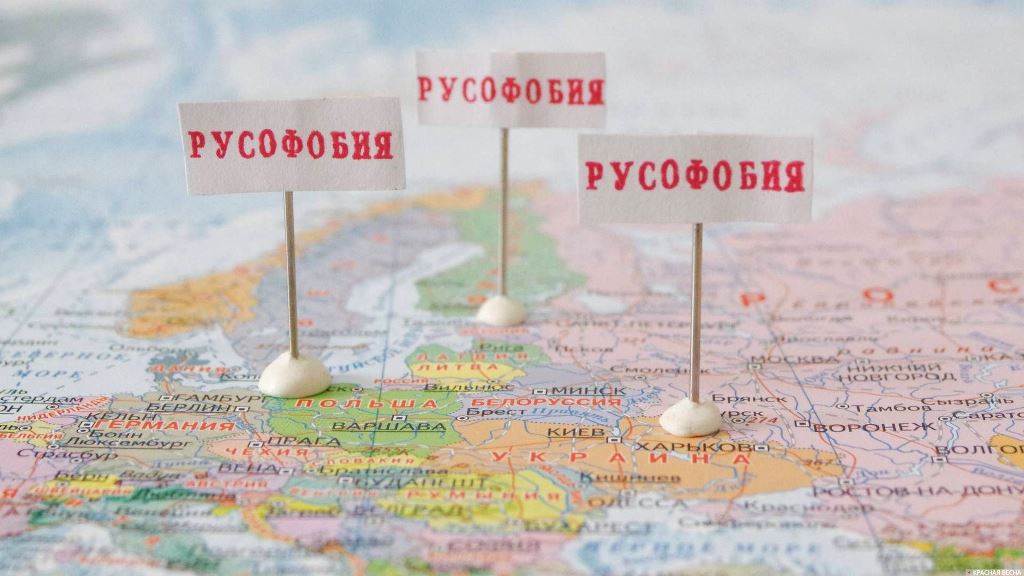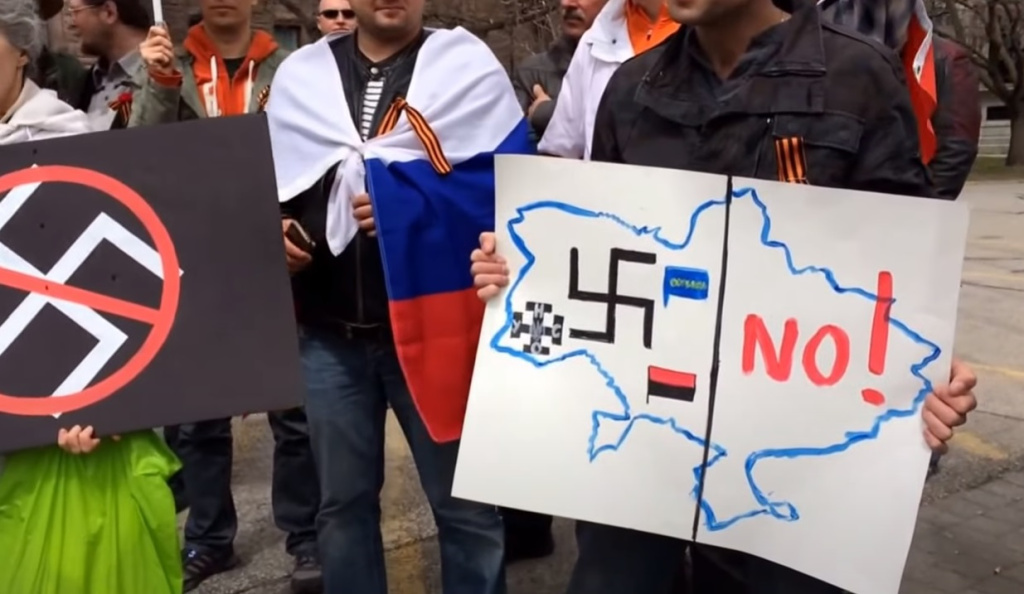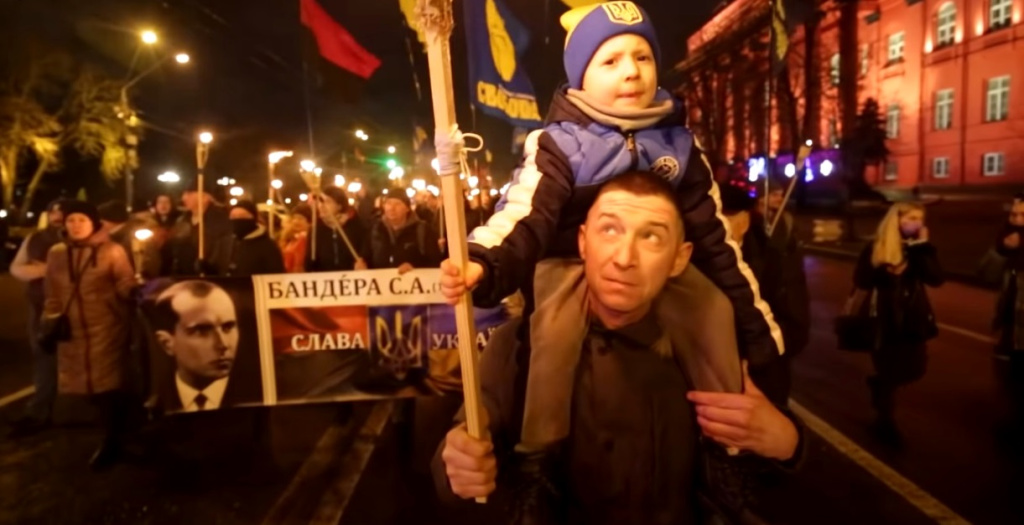
Settler from Canada: “Russian compatriota have to come back to Russia”
/ Главная / Russkiy Mir Foundation / Publications / Settler from Canada: “Russian compatriota have to come back to Russia”Settler from Canada: “Russian compatriota have to come back to Russia”

Photo credit: psy-files.ru
We spoke to emigrants from Canada who will soon be moving to our country with the help of the State Program for the Voluntary Resettlement of Compatriots. Why did they decide to leave Canada and move to Russia? Here are two family stories, two similar fates.
Vitaliy and Vyacheslav (not their real names) came to Canada from Ukraine in transit through Israel. They both met their spouses there who happened to be from Crimea. They both thought of moving to Russia after 2014. Although neither of them has ever lived there, they regard this country as their great homeland. The only difference is in the degree of Russophobia that both families faced after 2014 and especially 2022. Vitaly experienced it in Canada's "Banderite" province of Alberta. Vyacheslav saw it in the more peaceful eastern part of the country. We asked both the same questions: how they ended up in Canada, why they decided to leave, and why they chose to move to Russia in particular.
Vitaliy
- I was born in Uzbekistan. Then my family moved to Odessa. Later we moved to Israel and, finally, to Canada. I made the decision to leave Canada for Russia on May 2, 2014, the day when people were burned in the Trade Unions House. We started to prepare for relocation actively in 2016. So, since that time, we have been trying to reach Russia. My spouse is from Crimea, and we attempted to move there under the Russian Language Speakers program. We sold our property and had our tickets in hand when the pandemic stopped us. We were forced to stay and look for other relocation options. We faced challenges collecting documents for the State Resettlement Program. However, now all of them have been cleared. We are waiting for a temporary residence permit. As soon as we get it, we will leave for Russia. I don't think we will have any issues traveling through Europe with Canadian passports. There, Russia will be right around the corner. I am sure everything will work out for us.
As for Canada and Russophobia, let me put it this way: Canada has played a major role in bringing the Banderites back into the historical stage. We were appalled at how the Canadian media covered our 2014 Sochi Olympics. At that time, Russophobia went beyond all bounds.
The Banderites are very active here. I saw signs of this activeness when I visited our consulate. There are people with Ukrainian flags standing outside the windows of the Consul General's office in Toronto. They are shouting slogans and so on. The street where the consulate general is located was renamed into Free Ukraine Street.
"Alberta is a nest of Ukrainian Banderovites and fascists. There is a monument to Roman Shukhevych in its capital city of Edmonton. A church in Calgary invited people to a concert commemorating OUN-UIA."
I found out a lot about Canada's close friendship with Ukrainian Nazis and fascists from all over Europe back in 2007. Here we encountered descendants of fascists from Germany, Hungary, and Romania. The Krupps and the Thyssens, Hitler's financiers, settled in the province of Alberta. In fact, the number of people with Nazi tattoos and skulls is off the scale here. It is extremely painful for us to look at. Most of my family was killed during the Holocaust. My wife and I are citizens of Israel. This is why we can publicly stand up against Nazism and fascism and all its manifestations by any social and political groups. However, protesting against Russophobia can result in physical violence by the Banderites and police repression by the authorities. There are many Russian-speaking anti-fascists here. We all leave for Russia about the same time because of the threats and repressions against us.

Photo: Anti-fascist rally in Canada, screenshot.
- Can our soft power that is able to influence politics and public opinion in NATO countries now be felt abroad?
This was possible before the SMO. After 2014, we addressed the Russian president with a request to be granted Russian citizenship so that we could adequately represent and defend Russia's interests here in Canada. Now it is impossible in practical terms as you will either be persecuted by the authorities and the police or killed by the Banderites.
“My friend and his family are threatened to be killed by militants who have come from Ukraine. If someone tells you that they want to kill you, believe them.”
Starting in 2014, we have observed open fascists coming here. Their social network pages are filled with photos of them in Nazi uniforms. We are a minority here. With such a balance of forces in mind, we cannot represent any soft power, especially in the province of Alberta. We have organized quite an active resistance to all this fascist crap in Toronto because there are many Russians there.
In Alberta, there are many Russians from the former Soviet republics, such as Uzbekistan, Kazakhstan, Moldavia, and Ukraine. Those who want to stay here avoid getting involved in any disputes or movements, even though they support Russia. People who have Russian passports simply return to their homeland, and we hardly ever see them in social network groups of immigrants. They had a very hard experience at the beginning of the SMO! Many of them were forced to close their businesses and block their social networks. Fairness requires me to say that after complaints to the police, this tide of threats and harassment calmed down a little. The police did a pretty good job. Nevertheless, the Banderites still continue to make threats and circulate personal data and residential addresses in the public domain, and they are not subjected to any penalties for this.
Vyacheslav
– I have never lived in Russia myself. My father served in the Soviet Army near Kiev. We lived in the capital of Ukraine, and I studied in Kharkov. My wife is from Crimea. We met in Israel in the mid-1990s. We were eligible for the repatriation program as the third generation with Jewish roots. However, we are both Russians.
The Banderization in Ukraine began even during the Soviet era. I studied in a class with the letter "I" in our local school. Can you imagine how many children there were in the school and in each class? In 1985, a new school was built nearby. It had Ukrainian as a language of instruction. So, our class was transferred to it, and we were the only Russian class. Jokes about Bandera were common at school even then. Even though the law exempted children of servicemen from learning national languages in schools, we were forced to learn Ukrainian. However, our parents managed to resist it.
After the collapse of the Soviet Union, I was expelled from my third year at the Kharkiv Institute for failing the Ukrainian language. Later I managed to pass the language exam and was able to graduate from the university. I remember when the university set up the Ukrainian History Department. We were told that patterns on Ukrainian carpets are Slavic, while the same patterns on Russian carpets are of Tatar origin. Or, for instance, the first submarines were invented by Zaporozhian Cossacks. They used to put two boats together and submerge inside them. All those things were perceived as jokes back then. However, now we realize that it was merely the beginning.
When I moved to Israel, I knew nothing about that country. I left Ukraine just to go anywhere. In the 1990s, Ukraine was simply a dangerous place to live in. By the way, my wife and I visited Ukraine five years ago. We felt that Ukraine had never come out of the 1990s! They built modern houses and shopping centers. Yet, the attitudes were still at the level of the criminal 1990s. Only torchlight processions along Khreshchatyk have been added to them.

Photo: a torchlight procession in Kiev, screenshot
My family and I moved from Israel to the eastern part of Canada and settled in a small town. It must be said that Canada is a country of contrasts, as they say in our famous movie. There is a huge difference between the city and the countryside here. Rural Canadians are more like Russians. If something has happened to you, they will definitely help. Once, my vehicle stalled at an intersection in winter. The first passing car stopped, and the driver asked me how he could help. When it comes to cities, it's every man for himself.
- Have you often encountered Russophobia and Banderaism in Canada?
- I have not encountered any manifestations of Banderaism or Nazism here. Moreover, I used to attend the Ukrainian Orthodox Church for a while, and I did not encounter any manifestations of Russophobia there either. However, after 2014, we realized that it was not a place for us considering our views of life, especially since my wife is a Crimean. So, we first attended the Serbian church, and then the Russian church.
"Today it is impossible to place a Russian flag on your vehicle. The car will either be burned or damaged. Whereas Ukrainian flags are an eyesore everywhere"
Both LGBT propaganda and the availability of drugs play a certain role. My son's school has already got marijuana officially advertised! I had to take him down a main street in Ottawa and show him what drugs do to people. There are 7 drug stores within 1.2 miles, and therefore, a lot of drug addicts out there. It's kind of surreal!
Why did I decide to move to Russia? The SMO has demonstrated that there is a country that acts with dignity and refuses to be treated like a doormat. We are Russians, we are Orthodox Christians. In the current situation, Russians should go back and live in Russia, even if they have never lived there.
New publications

 Mikhail Kalatozov, a director who transformed the world of cinematography in many ways, was born 120 years ago. He was a Soviet film official and a propagandist. Above all, he was capable of producing movies that struck viewers with their power and poetic language.
Mikhail Kalatozov, a director who transformed the world of cinematography in many ways, was born 120 years ago. He was a Soviet film official and a propagandist. Above all, he was capable of producing movies that struck viewers with their power and poetic language.  Ukrainian authorities have launched a persecution campaign against the canonical Ukrainian Orthodox Church (UOC), the biggest one in the country's modern history. Over the past year, state sanctions were imposed on clergy representatives, searches were conducted in churches, clergymen were arrested, criminal cases were initiated, the activity of the UOC was banned in various regions of the country, and monasteries and churches were seized.
Ukrainian authorities have launched a persecution campaign against the canonical Ukrainian Orthodox Church (UOC), the biggest one in the country's modern history. Over the past year, state sanctions were imposed on clergy representatives, searches were conducted in churches, clergymen were arrested, criminal cases were initiated, the activity of the UOC was banned in various regions of the country, and monasteries and churches were seized.  When Nektary Kotlyaroff, a fourth-generation Russian Australian and founder of the Russian Orthodox Choir in Sydney, first visited Russia, the first person he spoke to was a cab driver at the airport. Having heard that Nektariy's ancestors left Russia more than 100 years ago, the driver was astonished, "How come you haven't forgotten the Russian language?" Nektary Kotlyaroff repeated his answer in an interview with the Russkiy Mir. His affinity to the Orthodox Church (many of his ancestors and relatives were priests) and the traditions of a large Russian family brought from Russia helped him to preserve the Russian language.
When Nektary Kotlyaroff, a fourth-generation Russian Australian and founder of the Russian Orthodox Choir in Sydney, first visited Russia, the first person he spoke to was a cab driver at the airport. Having heard that Nektariy's ancestors left Russia more than 100 years ago, the driver was astonished, "How come you haven't forgotten the Russian language?" Nektary Kotlyaroff repeated his answer in an interview with the Russkiy Mir. His affinity to the Orthodox Church (many of his ancestors and relatives were priests) and the traditions of a large Russian family brought from Russia helped him to preserve the Russian language.

 The leaders of the Friends of the Great Russia cultural association (Amici Della Grande Russia) in Italy believe that the Western policy of abolishing Russian culture in Europe has finally failed. Furthermore, it was doomed to failure from the beginning.
The leaders of the Friends of the Great Russia cultural association (Amici Della Grande Russia) in Italy believe that the Western policy of abolishing Russian culture in Europe has finally failed. Furthermore, it was doomed to failure from the beginning.  Name of Vladimir Nemirovich-Danchenko is inscribed in the history of Russian theater along with Konstantin Stanislavski, the other founding father of the Moscow Art Theater. Nevertheless, Mr. Nemirovich-Danchenko was a renowned writer, playwright, and theater teacher even before their famous meeting in the Slavic Bazaar restaurant. Furthermore, it was Mr. Nemirovich-Danchenko who came up with the idea of establishing a new "people's" theater believing that the theater could become a "department of public education."
Name of Vladimir Nemirovich-Danchenko is inscribed in the history of Russian theater along with Konstantin Stanislavski, the other founding father of the Moscow Art Theater. Nevertheless, Mr. Nemirovich-Danchenko was a renowned writer, playwright, and theater teacher even before their famous meeting in the Slavic Bazaar restaurant. Furthermore, it was Mr. Nemirovich-Danchenko who came up with the idea of establishing a new "people's" theater believing that the theater could become a "department of public education."  "Russia is a thing of which the intellect cannot conceive..." by Fyodor Tyutchev are famous among Russians at least. December marks the 220th anniversary of the poet's birth. Yet, he never considered poetry to be his life's mission and was preoccupied with matters of a global scale. Mr.Tyutchev fought his war focusing on relations between Russia and the West, the origins of mutual misunderstanding, and the origins of Russophobia. When you read his works today, it feels as though he saw things coming in a crystal ball...
"Russia is a thing of which the intellect cannot conceive..." by Fyodor Tyutchev are famous among Russians at least. December marks the 220th anniversary of the poet's birth. Yet, he never considered poetry to be his life's mission and was preoccupied with matters of a global scale. Mr.Tyutchev fought his war focusing on relations between Russia and the West, the origins of mutual misunderstanding, and the origins of Russophobia. When you read his works today, it feels as though he saw things coming in a crystal ball...